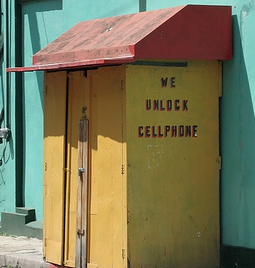Consumers Union Calls On FCC, Lawmakers To Relax Rules On Cellphone Unlocking
Earlier today, our cohorts at Consumers Union wrote separate letters to outgoing FCC Chairman Julius Genachowski and Senator Jay Rockefeller, Chairman of the Senate Committee on Commerce, Science, and Transportation, urging both regulators and lawmakers to work together to relax the restrictions put in place by the Librarian of Congress.
“We have been very concerned that, as a result of the Copyright Office’s decision, the practice of unlocking is no longer protected, and now could be deemed a violation of copyright law, potentially subjecting consumers even to criminal prosecution,” writes CU Senior Policy Counsel George P. Slover. “In our view, consumers should be able use the mobile devices they have purchased as they see fit.”
This goes beyond merely switching carriers, explains CU. If a phone’s owner relocates abroad and their current phone works in their new country, they should not be required to get their old carrier’s permission to unlock the device. Similarly, these restrictions mean the owner of the phone may only be able to sell the device to buyers on the same network, even if it would work on a competing network.
“All of these uses make sense for consumers, and all should be legal and available,” explains Slover in the letter to Genachowski. “We are aware that a number of bills have been introduced in Congress, taking various approaches, to restore the legal protection removed by the Copyright Office’s decision. We respectfully urge you to continue your own consideration of whether the Commission should take the initiative to craft an effective solution.”
There is also concern about the longstanding practice of using phone subsidies to get consumers to sign — and re-sign — multi-year contracts with wireless providers. CU argues that consumers would see lower prices and more competition if people were buying phones separately from their wireless plans. The phone may appear less expensive when the wireless company offers a huge discount for signing a contract, but CU contends that the cost for these subsidies are really just shifted over into customers’ monthly rates, so we are all ultimately paying full price for the phones.
In the letter to Sen. Rockefeller, CU writes:
“We are encouraged to see that some wireless carriers may be beginning to offer consumers more choices than the bundled contract. In a truly competitive marketplace, we could expect all carriers to be responsive to what consumers want. Rigid lock-in contracts bundling mobile phone with wireless service could become a thing of the past, or become one of many options. We hope you will support efforts in the FCC and the antitrust enforcement agencies to actively protect and promote competition in this important sector. And we hope you will also consider whether legislation would be beneficial in helping remove any impediments to healthy competition.”
Want more consumer news? Visit our parent organization, Consumer Reports, for the latest on scams, recalls, and other consumer issues.


